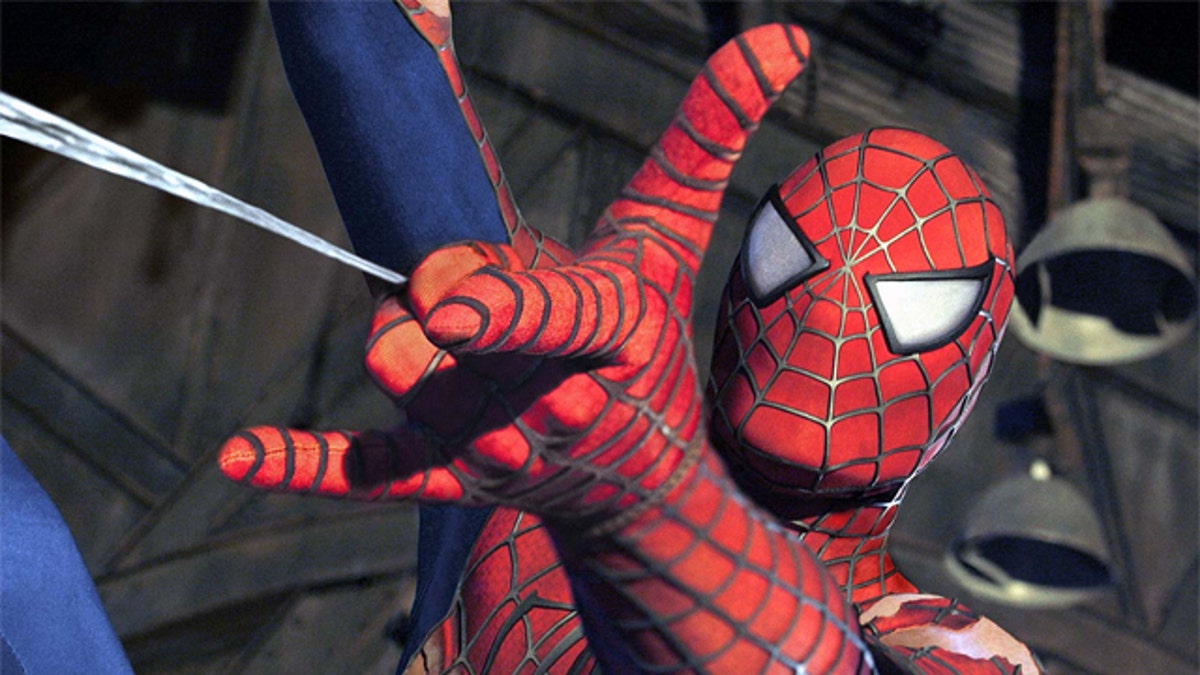
Pound for pound, spider silk is stronger than steel. (Columbia Pictures)
The ability of fictional superhero Spider-Man to swing off city skyscrapers using his sticky web could one day become a reality after US scientists developed a way to mass produce super strong spider silk.
Spider silk is stronger than steel in weight-for-weight terms, but researchers have failed to find a way to reproduce enough for commercial production -- until now.
A group of scientists from the University of Wyoming, led by Professor Don Jarvis, have genetically modified the silkworm to spin silk with spider protein, Sky News reported.
"Our hope was that by embedding spider-silk protein [gene] sequences within silkworm silk [gene] sequences, we could get those proteins to co-assemble ... into composite fibers, and that is what happened," Jarvis, a molecular biologist at UW in Laramie, told National Geographic News.
In his team's study, published this week in the Proceedings of the National Academy of Sciences magazine, they said there were "serious problems" with naturally manufacturing the spider protein because the arachnids do not produce enough material on their own and have a tendency to eat each other.
The researchers added that while silkworms are much easier to farm and produce copious amounts of silk, the material is often weak. So they worked out a way to transfer the key spider genes responsible for the strong thread-making into the silkworm.
The scientific breakthrough could open the door for large-scale production.
The silk could be used in many medical applications including creating artificial ligaments and tendons, as well as for tough wound dressings. It was also thought to be strong enough have potential as a new material for making bulletproof vests.








































